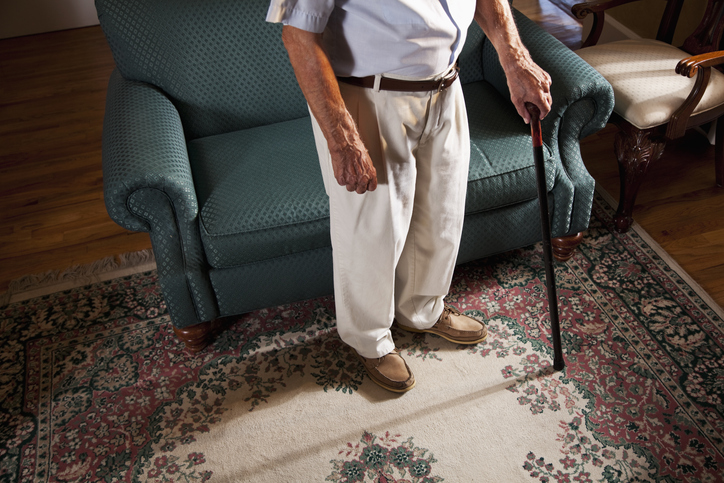Heavy footsteps and loud music and TV are common causes of noise complaints in flats, but there are simple steps you can take to reduce such an annoyance and avoid disputes between neighbours.
It’s almost impossible to soundproof an apartment completely. However, everyday materials can help with absorbing sound, and can make a difference for little cost. They can also be part of your general furniture and interior décor.
Reduce footstep noises in a flat
The sound of footsteps and objects being dropped is a common source of annoyance.
One simple way to reduce the sound of footsteps annoying the residents downstairs is to lay carpets and rugs. Wall hangings and curtains, upholstered furniture, and even plants, can help to absorb sound. A well-stocked bookshelf can also have a similar effect.
Many leases specify that you must lay carpet or rugs to reduce the sound of footsteps, so check your contract before spending money on modern laminate, as you might end up having to cover them. These clauses are put into leases for a good reason, often written by those who know the building well. You may want to check the wording of your lease carefully before opting for hard floors, as you may have agreed to such a restriction when you signed it.
Be considerate when listening to the television or music
Loud music can be another common complaint in flats. It can be unbearable to have the constant sound of someone else’s taste in music or their TV programmes, especially if you only get half the sound spectrum (usually the pounding base).
So, what can you do – or ask your neighbour to do?
Often the issue isn’t the volume, it’s the vibrations (though volume contributes to vibrations). Bass frequencies have long wavelengths that can travel through drywall, insulation, and the floor, whereas a high frequency sound will be reflected back for the most part. Just turning the music down won’t necessarily be enough.
The floor is like a giant resonator for bass, so isolating the bass is a must to help avoid annoying your neighbours. The idea is to separate the subwoofer from the floor with a spongey or rubbery material full of air gaps. There are specially-made risers, but you can try a home-made version – the aim is to dampen the vibrations before they reach the floor. Alternatively, just ‘decouple’ the devices form the floor with a stand or a set of short legs.
Reduce the noise caused by appliances
Consider which appliances you use on a regular basis might produces a lot of noise.
If the washing machine is unbalanced and moving around the kitchen, it can make much more noise – and potentially end up causing damage to the appliance. It’s worth adjusting the legs or getting an engineer to inspect it.
Be aware of the quiet hours in your block of flats
Leases often specify times when noise must be kept down – often this is between 11pm and 7am. Leases rarely, however, define what a reasonable level of noise is, so be aware of what your neighbours are likely to accept. Do they have young children? Do they work shifts?
Perhaps just ask your neighbours if they can hear you or your entertainment systems? They might say no, and you could be worrying unnecessarily.
Install soundproofing materials
If DIY solutions don’t work, acoustic insulation foams and ‘wool’ can be installed in cavities between floors and dividing walls, but this is certainly something you would need to discuss with your freeholder or managing agent before disturbing the fabric of the building.
Blocks of Flats Insurance from Gallagher
We understand that cover and price are important to you, and we will search our panel of well-known insurers to help find you suitable protection. Use our quote form or call us on 0800 612 8631 for a quote.
The sole purpose of this article is to provide guidance on the issues covered. This article is not intended to give legal advice, and, accordingly, it should not be relied upon. It should not be regarded as a comprehensive statement of the law and/or market practice in this area. We make no claims as to the completeness or accuracy of the information contained herein or in the links which were live at the date of publication. You should not act upon (or should refrain from acting upon) information in this publication without first seeking specific legal and/or specialist advice. Arthur J. Gallagher Insurance Brokers Limited accepts no liability for any inaccuracy, omission or mistake in this publication, nor will we be responsible for any loss which may be suffered as a result of any person relying on the information contained herein.
FP1401-2023
